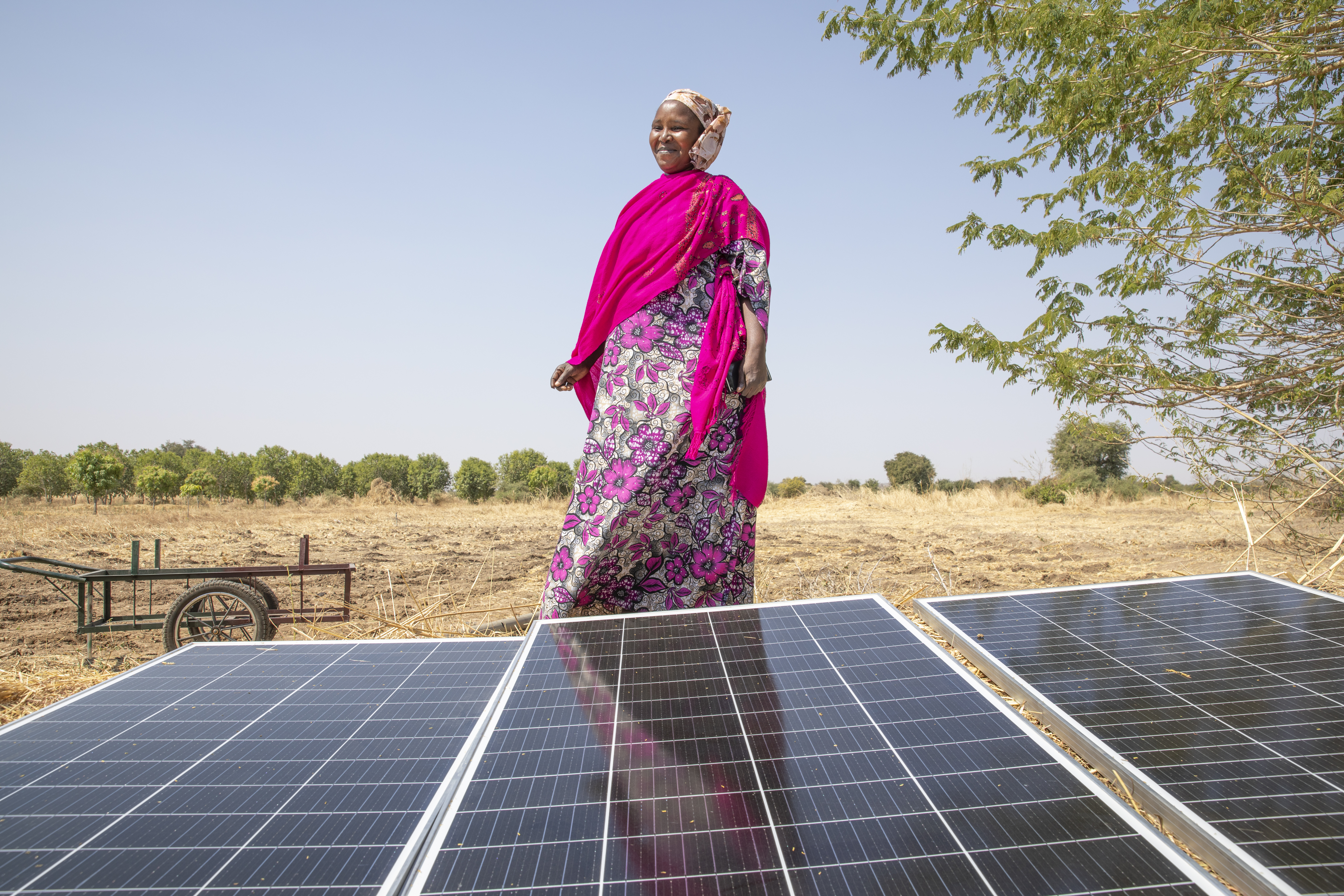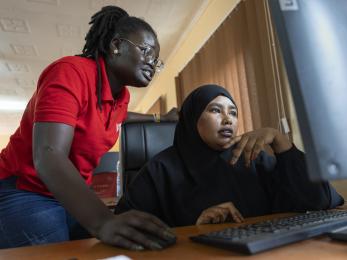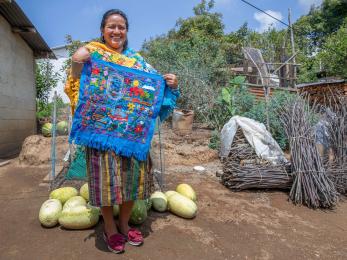The gift of a lifetime: A mother builds a better future for her daughter
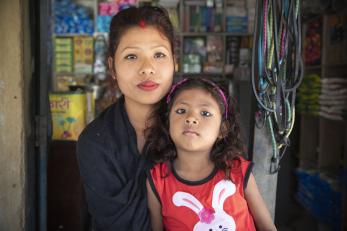
At age 24, Sajan is thinking about the future of her family. She wants her five-year-old daughter Aarohi to have opportunities that she didn’t have. She wants Aarohi to attend private school and overcome the pressures to drop out and marry young. Sajan hopes that one day her daughter will earn her degree. While Sajan hopes for these things, she is working to build up her business so that one day, she can leave it to her children to ensure they have a better future.
In the Kailali District of Nepal, the majority of families live in a cycle of poverty. They live on less than 20 pence a day, and have few opportunities for employment outside of agriculture and working as day labourers in India.
The challenges of living in this area are compounded if you’re female. Income generating opportunities dwindle. Pervasive gender stereotypes and outdated expectations are the norm, and must be overcome if a woman wants to build something of her own.
Sajan is beating the odds in Kailali and diligently working to build a thriving business so that she can provide for her family.
The desire to create a better future for the next generation is universal. However, Sajan and other women in this part of Nepal face significant hurdles if they want their children, especially their daughters, to have access to more opportunities than they did growing up.
A better future starts with education
When girls and women are educated, they have a greater chance to break the cycle of poverty and lead healthier and more productive lives, benefitting their children, families, and communities. Yet in Kailai, more than half of girls aged 15-19 are not enrolled in school, resulting in perpetuating poverty.
In this area of Nepal, families often prioritise their sons’ schooling over their daughters. They send boys to better and more expensive private schools and girls to public school, where they struggle with failing infrastructure, illiteracy and poorly trained teachers. Adding to that challenge, girls have difficulty graduating because of competing expectations. Their families often expect girls to prioritise household or familial responsibilities of cleaning, cooking, washing, childcare—even marriage and childbearing—over their homework and education.
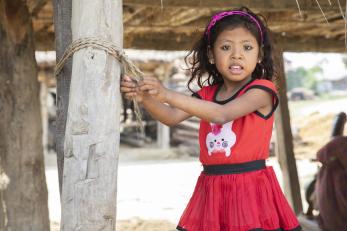
Sajan is no exception to these barriers. She married when she was in grade 10. She dropped out of school completely when she didn’t pass the grade 10 exam ( the equivalent of an American high school diploma, and required for higher education or skilled work). “I wanted to study, but I failed and then I was married. I felt sad,” she said, reflecting on what it meant to not continue her education. She had her daughter shortly thereafter.
A different approach to improving opportunities for women
Mercy Corps’ STEM programme works to improve opportunities for marginalised women both in and out of school. STEM works with girls ages 16 to 30 to help them learn, build independence and participate in their communities. This can be a lifeline for girls who seek to realise their own dreams.
For girls in school, it means additional tuition through girls’ clubs to help them succeed in class and feel supported to stay in school. The programme also improves school facilities, distributes study supplies and works to garner familial and community support for girls’ education.
Support for out-of-school girls also includes a club where girls and women receive support to return to school, sexual and reproductive health education, and access to loans and vocational training. Since access to financial services is seriously limited for females in this region — it is assumed women will get married or migrate and not repay their loan on time — this aspect of STEM is especially useful for women motivated to build a better future for their families.
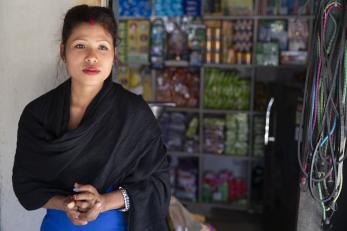
Before participating in Mercy Corps’ STEM programme, Sajan ran a small grocery stand out of her home to help support her family, but struggled because it was so small. With the meager amount of money she was making, she couldn’t improve her shop even though she was confident it could do better with just a few investments.
STEM provided Sajan with life skills education, financial literacy classes and access to a loan. With Mercy Corps’ support, Sajan took the loan and was able to expand her shop and boost her income. She takes pride in her tidy new shop. Having relocated to a larger, permanent structure, she now has a register stand and well-organised shelves full of snacks, notebooks and other items that customers are eager to purchase.
With the recent investment in her store, Sajan’s income has grown enough to send Aarohi to private school. Thanks to the support from the Mercy Corps STEM programme, the chance of Aarohi graduating is higher than ever, signifying the beginning of change for women in Kailai.
One of the most powerful ways you can support women like Sajan around the world is by including Mercy Corps as a beneficiary in your will. Your legacy gift connects your life story with our work for years to come — and with the lives of the millions of people we reach.
